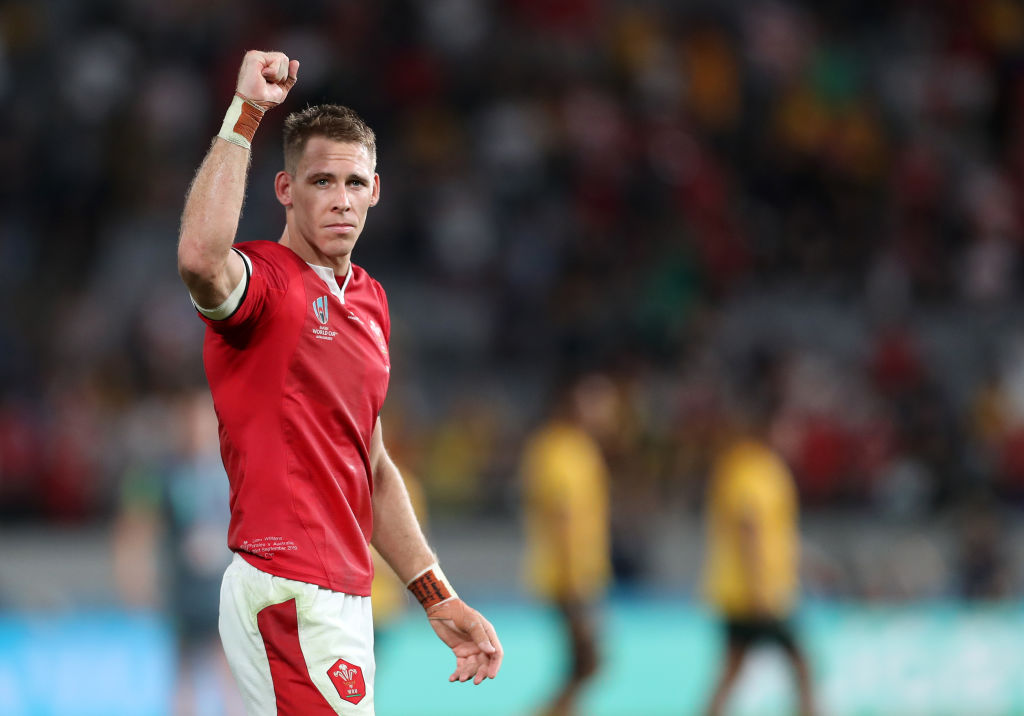Fast games suit super-fit Wales says training guru

CHOFU, JAPAN - SEPTEMBER 29: Liam Williams of Wales celebrates at full-time following his team's victory in the Rugby World Cup 2019 Group D game between Australia and Wales at Tokyo Stadium on September 29, 2019 in Chofu, Tokyo, Japan. (Photo by Shaun Botterill/Getty Images)
WALES‘ World Cup campaign couldn’t have gone much better to date and off the field Warren Gatland‘s support staff believe their players have the belief and capability to go all the way.
There is no doubt the departure of attack coach Rob Howley at the start of the tournament due to alleged betting breaches was a seismic shock, but since then Wales have won two from two.
Behind the men who take to the field, head coach Gatland has a team of world-class operators working around the clock to give Wales the best chance of success in Japan.
“This is the best group of players I’ve worked with,” says sports scientist Ryan Chambers, who has been part of Wales’ senior set-up since 2009, told TRP.
“They’re hungry and want to get better. They’re competitive with each other, but also know what’s best for the team. This week we had optional training days, but nigh on everybody did something if they could. Warren said it wasn’t a test as it could easily be interpreted as that.
“He made that quite explicit. The fact that everybody who could do some training did so sums it up.”
Wales are eager for success, but they would not be in a position to do so without the support of head of physical performance Bobby Stridgeon and his team of which Chambers is a part.
The rigorous pre-tournament planning and training camps in Switzerland and Turkey have left Wales in a fine place and has meant they have quickly been able to adapt to sapping conditions in Japan.
Chambers says: “It’s definitely the fittest squad I’ve worked with. That’s not to say we weren’t fit at the last World Cup, but the game has evolved massively in the last eight years.
“A couple of the lads said after the Australia match they felt that if the game had been half an hour longer they could have kept going. It’s clear they feel fit.
“When I go into the changing room at half time now we have to tell the lads to calm down. They’re ready to go and on the edge of their seats.
“They don’t look too stressed physically and that’s down to how we train. We make sure training is harder than games.
“That’s what we aim to do and the players know that.”
Chambers’ job is to monitor the workload of every Wales player and tailor their training load accordingly. He uses GPS data and his insights are fascinating.
“Rugby is now totally different for the front five forwards. The distance they’re covering and the amount of high speed and high intensity running has gone through the roof,” Chambers said. “There is a lot more demand on them and that’s probably the biggest change in the last couple of years.
“Our front five forwards are now running close to one kilometre more per game than eight years ago. A front row forward today is doing what a back-row forward was doing a few years ago, the back-row are doing what the backs were doing, and today’s backs are now even quicker and faster.
“Everything has shifted up a gear and there will be a tipping point at some stage where the game will go in a different direction. If the game is going to go towards more ball in play time, that will change the type of player and there will be body changes rather than changes to output necessarily.”
Chambers is at his third World Cup and is preparing Wales for Wednesday’s clash with Fiji.
“The morale is great. There is no reason for us to fear anybody. The next two games are hugely important to make sure we finish top of the Pool.
“That will give us a Sunday to Sunday turnaround into the quarter-finals and semi-finals. That’s important to get a full preparation week to give us the best chance possible.
“It’s exciting and you don’t want it to end. It’s a little bit like the Welsh football fans who sang ‘Don’t take me home’ at Euro 2016.”
ALEX BYWATER